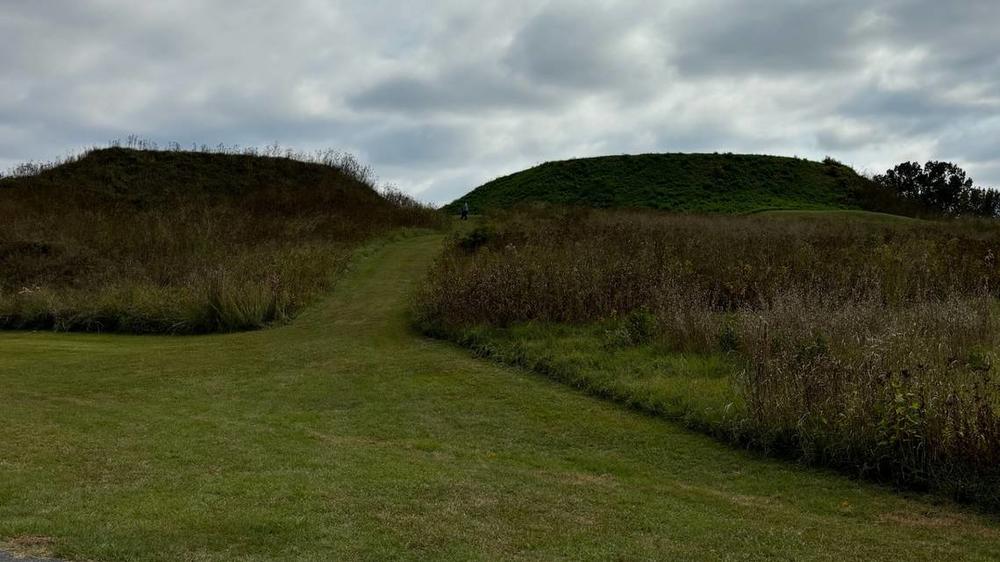
Caption
The bill that would make the Ocmulgee Mounds in Macon Georgia’s first national park faced delays at the end of 2024, but initiative leaders remain hopeful.
Credit: Margaret Walker / The Telegraph

The bill that would make the Ocmulgee Mounds in Macon Georgia’s first national park faced delays at the end of 2024, but initiative leaders remain hopeful.
The bill to make the Ocmulgee Mounds a national park and preserve didn’t make it into the end-of-year congressional agenda like many hoped.
Seth Clark, the executive director for Ocmulgee National Park and Preserve Initiative and a Macon-Bibb County commissioner, said Hurricane Helene created a pressing need for disaster relief, reducing space for other legislation. The mounds took a back seat, but the push is far from over.
The bill was, and still is, part of a larger package of around 70 public lands bills that didn’t fully pass in either Congress chamber last year and ultimately weren’t included in a package of legislation that was passed to temporarily fund the government when Congress couldn’t agree on a full budget before the start of the new fiscal year on Oct. 1.
The effort did see legislative successes in 2024: the Senate Energy and Natural Resources Committee approved it, and sent it to the full Senate. But it didn’t get a vote.
In the House, a similar package was heard in the House Natural Resources Subcommittee on Federal Lands, which “went quite well,” according to Clark. Rep. Austin Scott, a Republican representing Georgia’s 8th District, built support for moving it forward, but it didn’t get voted on.
The lack of voting was because the public lands package got “shelved for this Congress” due to the urgent nature of disaster relief, Clark said.
“We were in really good standing in both chambers at the end of last Congress,” Clark said. “If you were a Republican in the United States House of Representatives or United States Senate that heard this piece of legislation last year, you voted for it, period.”
This is noteworthy because both the House and the Senate have a Republican majority, though the House majority is slim.
When the current stopgap budget agreement expires after March 14, Congress will have to pass a full-year budget or another continuing resolution, which means momentum on the public lands package could pick back up, according to Clark.
“The committees will be turned back on and legislation will start moving, and they will prioritize things that have already got their boxes checked ... and we’re in that category,” Clark said.
Despite not passing at the end of 2024 like many hoped, initiative leaders are optimistic that the package will be reconsidered and passed in the current Congress.
“We’re really, really optimistic,” Clark said. “Our super power has always been that this has not been a partisan issue.”
In addition to having strong bicameral and bipartisan support, the bill has support from the Department of Defense, the Georgia Chamber of Commerce and the Georgia Mining Association, among others, according to Clark.
The National Park Service also fully supported the bill after technical changes were made in an amendment at their request.
Clark said the amendment could affect how many acres will be included the preserved land boundary but won’t affect the fact that the Muscogee (Creek) Nation, whose ancestral grounds are the mounds, will have an increased management role at the park.
Both bills in the House and the Senate need to be refiled, according to Clark.
“To their credit, Scott is working as hard as he can to get it refiled as soon as possible, so they can be considered as early as possible in this Congress,” said Clark.
This story comes to GPB through a reporting partnership with Macon Telegraph